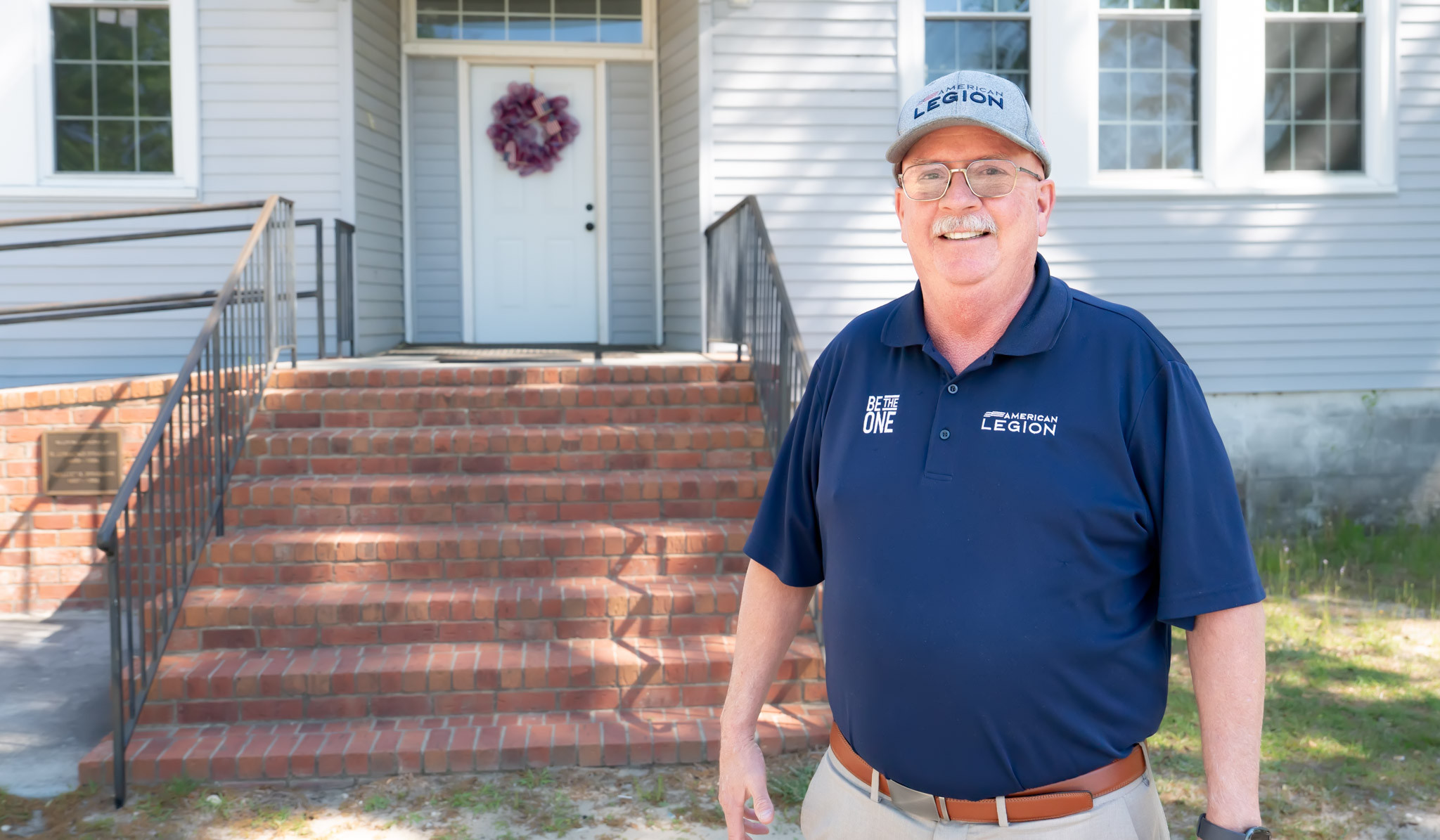
South Carolina post commander emerges from suicide attempt to embrace Be the One, instill hope in others and reassure those on the brink.
Jack Lonergan has held a wide-ranging array of jobs, including as a cook and handling mortuary affairs in the Air Force, as well as civilian work such as organizing community programs that often featured balloon displays.
After retiring from the Air Force as a master sergeant in 2003, Lonergan worked as a community center director on Shaw Air Force Base in Sumter, S.C., for 10 years.
Even though he found a civilian career quickly, Lonergan experienced issues after he transitioned. His depression, anxiety and other problems stemmed largely from witnessing a military plane crash on March 13, 1987. All six aboard were killed as well as a seventh person on the ground, who ironically was supposed to be on the flight.
“I worked two years in mortuary affairs,” said Lonergan, commander of Dalzell-Shaw American Legion Post 175 in South Carolina. “I witnessed the plane crash, did the search and recovery, and got the nightmares every night to prove it. If I'm invited to a house with a bonfire, the heat brings back memories of the plane crash that I watched. I was about a block away from where it hit the ground.”
After the crash, Lonergan was in shock. But in those days, there were no initiatives such as The American Legion’s Be the One mission to prevent veterans and servicemembers from dying by suicide.
At that time, counseling was not available. He was left to process what he witnessed by himself. Hours later, he was processing the uniforms of the crash victims, making sure there was nothing discrediting the person or the Air Force, and sorting out any jewelry or other keepsake items for the next of kin.
The lack of support followed him as a civilian employed at Shaw.
“Many years before I attempted suicide, one of my commanders said to me, ‘How are you doing today?’” he recalled. “I said, ‘Well, I haven't killed myself.’ And she told me I was so negative all the time and I needed to be more positive.” So Lonergan would tell colleagues he was fine, no matter what.
His mental wellness hit highs and lows until sometime in the 2010s when the community center closed. In 2016, he was hired as the club manager on Shaw.
“I thought it'd be my dream job,” he recalled. “I love to cook so I'd have an opportunity to try new things in the kitchen for the customers. I love the program. I like working with people. I like talking to people. I like creating smiles.”
But his struggles continued. “The people who I worked with closely knew there was something wrong. They would ask how I was doing but never asked probing questions.”
THE FATEFUL DAY
He went to work on Sept. 4, 2019, with no intention of surviving the day.
“I felt hopeless. I felt that I let my family down. I felt that I let the leadership that trusted me down. I felt that I was a failure at everything I did. And I just felt that I was a burden on my family. And the best thing for me and my family is to just end it.”
The trigger was an inventory report that was to run overnight. If it was a bad report, Lonergan planned to kill himself. He arrived first at the office, as he had planned, and reviewed the report.
After retrieving the report, his suspicions were confirmed so he walked back to his office, sat down and reached for a pair of scissors. He knew exactly where to thrust the scissors into his wrist, so he closed his eyes and hit the target.
But he didn’t feel anything.
Lonergan looked down and saw he grabbed the scissors for the ballons. They are not sharp, they are similar to ones kindergarteners use.
“I sat and I cried, I can't even kill myself.”
‘IT’S OK TO NOT BE OK’
In the aftermath, Lonergan learned the root of his problem. He was so dedicated to his work, other parts of his life were in disarray. His home was a wreck. His grass was overgrown. He had no time for hobbies either.
“I learned about different coping mechanisms, and self-care, which I practice now,” he said.
During the outpatient sessions Lonergan also learned about resources that were available. Those included service dogs for those with PTSD, whitewater rafting trips, PGA golf lessons for veterans with disabilities and more opportunities.
“If I had known about these things before, would my life be different today?” he asked “I truly believe that on September 4, 2019, when I pulled out the wrong pair of scissors, it was because a higher power wanted me to use my platform in The American Legion to tell other people what I've been through and that it's OK to not be OK.”
That message is at the root of the Legion’s Be the One mission. Another core component is the free, 90-minute training that equips participants with the knowledge, tools and confidence to approach and communicate with a veteran in crisis. (Learn more about the training and sign up here.)
Lonergan thinks such training could have made a difference back when he was in crisis.
“If I can help save just one, that's awesome,” he said. “I always thought that I was the only one that was going through this. And even though you're not, you think you are, and other people might understand what you're talking about, but you don't think they do.”
- Be the One

